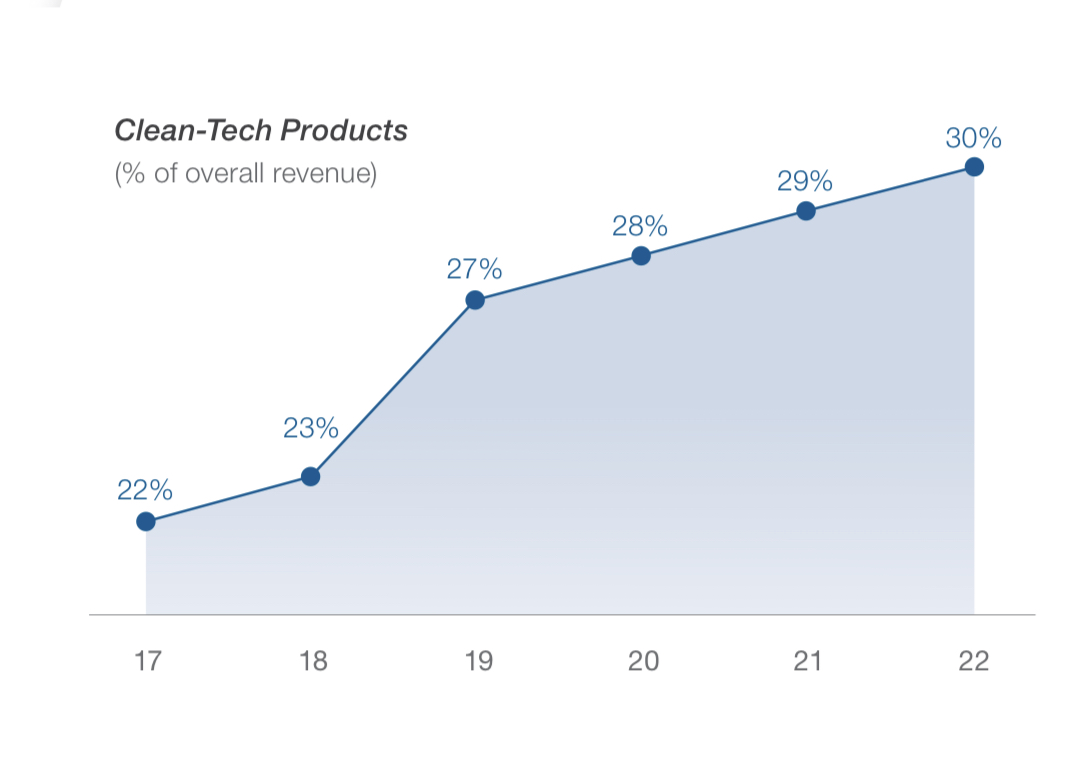Measuring environmental impact
September 27, 2023
At a high level, impact investing is defined as an investment approach that seeks to generate both financial returns and positive, measurable social or environmental impact. In other words, it’s an investment strategy that aims to make a positive difference in the world while also achieving financial gains for the investor.
There is an assumption in parts of the investing world that impact investing is only achieved through direct investments in companies focused on such things as renewable energy, affordable housing, or organic agriculture. However, it should be acknowledged that it is also possible to make a positive impact through investments in large-cap public equities, even where a company has a broader business focus.
At Honeytree, we use a net-positive impact framework in our security selection. We invest in companies based on the strength of their governance and leadership, their commitment to innovation, consistent fundamentals, and a strategic focus on making a net positive impact on the world. We invest in companies where the bottom line is directly tied to the positive impact they make on their stakeholders. In these cases, impact comes from all aspects of how a company does business. In some cases, the impact a company makes can be substantial due to the scale of the company and its reach.
Let’s look at a real-world example of a major corporation that we hold in our investment strategies, Intuit, that is not a renewable energy company per se but has transitioned a significant part of its energy needs away from oil and gas to renewable sources. This move not only reduces its dependence on fossil fuels but also reduces its exposure to energy prices, leading to a more predictable and resilient business model. In 2020, Intuit hit its 100% renewable energy goal a full decade early. Additionally, as part of its ongoing climate plan, Intuit has focused aggressively on climate justice by building a climate plan that creates climate related jobs and renewable energy opportunities for marginalized communities across the country. Intuit has partnered with non profits and communities to build community-first renewable energy projects focused on creating jobs and sources of sustainable power. In Virginia for example, Intuit has launched the Coalfield Solar Fund which provides multiyear funding for solar power, job training and hand-on student learning opportunities in the solar industry for those in Virginia and West Virginia. When a company with a substantial workforce commits to reducing its environmental footprint, the potential for positive change is immense and can go beyond just their reduction in emissions. In fact, these companies can drive change far beyond their businesses and help build both renewable and workforce capacity for the future of renewables.
Supply chains are another area where large corporations can have real and significant impact given the giant scale of their supply chains. Companies that prioritize environmental responsibility can catalyze positive change across all parts of their business partnerships and supply chains. By promoting sustainable practices from their suppliers and partners, these companies create a ripple effect that reverberates throughout the entire ecosystem at a system changing scale.
Consider retail giant Costco, one of Honeytree’s holdings, and its vast global supply chain. While buying renewable energy instead of non-renewable energy throughout its supply chain is key, so is its approach to reducing things like shipping distance and shipping size. As one example, it took a creative approach to shipping products from their main depot in Tokyo, Japan to the northern most warehouse in the county in Tomiya, 430km away. The team at Costco managed to shift delivery from 5 containers daily, by trailer, to two containers by train every week. When companies innovate supply chain efficiencies and reduce emissions at the same time, the results and impact are magnified and longer lasting.
A company’s products can also help to mitigate climate-related emissions of customers. Illinois Tool Works, another one of Honeytree’s holdings, is an industrial company active in several major industrial sectors. Among other things, the company makes clean-tech products that help its customers drive emissions reductions and innovations across many industries. Over the past six years it has increased its revenues from clean-tech product sales from 22% to 30% of total revenue. As just one example, Illinois Tool Works provides software used in designing and making truss systems in residential construction. Its innovative software not only increases accuracy in the design process but results in reduced material waste and increases durability and longevity of residential structures.

Investing directly in cleantech ventures remains a vital approach to support environmental progress, but it is not the only avenue for making a direct positive impact. Operational efficiency, capital expenditures in clean technologies, responsible sourcing, community partnerships and many other deliberate choices by companies are critical to making real and sustained impact on the world.

